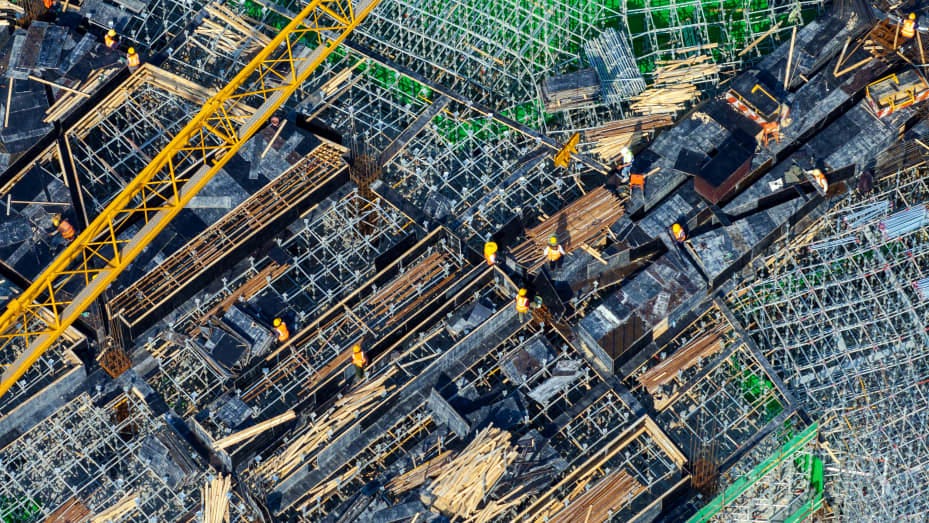China's Property Sector Crisis: A Historic Intervention by the Government
In contrast, the housing market in India is stable, thanks to the pragmatic policies of the Government.

China’s Real Estate Sector: A Struggle for Stability
On May 17, 2024, Chinese authorities unveiled a series of measures aimed at stabilising the country's beleaguered real estate sector. The People's Bank of China (PBOC) announced a 300 billion yuan ($42.25 billion) support package for financial institutions, enabling local state-owned enterprises (SOEs) to purchase unsold apartments, underscoring the inherent risks of over-supply, especially in a scenario where end-users are cautious about investing in home purchases. Particularly among the younger age bracket, there is a preference to rent rather than buy. This move is part of a broader strategy to inject liquidity into the market, ensuring that developers can complete unfinished projects, deliver on pre-sold properties, and locate new buyers.
The 2008 Economic Crash: A Prelude to Modern Financial Crises
The economic crash of 2008, ignited by soaring housing prices and the failure of so-called triple-A rated bonds, serves as a stark reminder of how interconnected and fragile the global financial system can be. This crash, which began in the United States, quickly swept across the world, affecting economies far and wide. As housing prices plummeted and mortgage defaults soared, financial institutions faced unprecedented losses, leading to a global economic downturn despite feverish interventions by governments and central banks across the globe.
Today, similar cautionary tales are unfolding in China, where the real estate sector's woes are prompting significant government intervention.
Key Measures and Their Implications
Several critical measures were announced, including the removal of the floor on mortgage interest rates and lowering the minimum down payment ratio for first and second-time home buyers. These steps are designed to make housing more accessible and stimulate market activity. Additionally, the National Financial Regulatory Administration reported that commercial banks have provided 935 billion yuan in loans to finish construction on whitelisted projects since January. Dong Jianguo, Deputy Head of the Ministry of Housing & Urban-Rural Development, stated, "Developers that must go bankrupt should go bankrupt, while those that need to be restructured should be restructured," underscoring a clear-cut carrot-and-stick policy.
Challenges and Concerns
Despite these efforts, challenges remain. The local governments' limited fiscal resources constrain the scope of the intervention, raising concerns about rent-seeking and moral hazard. Zhu Ning, a finance professor at Tsinghua University, pointed out that without a significant change in housing prices, current prices remain too high relative to household incomes and rental yields. The Government's ability to engineer another housing price surge remains uncertain.
Forward-Looking Optimism: Learning from Past Mistakes
The Chinese Government's intervention reflects a cautious optimism. By stepping in as the buyer of last resort, the government aims to prevent a total collapse of the housing market. However, this intervention also serves as a reminder that no economy, no matter how large, is immune to financial crises. The global financial system must remain vigilant and proactive to prevent similar crises in the future.

India’s Resilient Housing Sector: A Contrast
In contrast to China, India's housing sector remains stable, thanks to the pragmatic policies of Prime Minister Narendra Modi and Finance Minister Nirmala Sitharaman. Moderate regulation by the Reserve Bank of India (RBI) has helped maintain stability in the housing market. Under the leadership of Urban Affairs Minister Hardeep Singh Puri, the implementation of the PM Awas Yojana and the Real Estate (Regulation and Development) Act (RERA) has ensured that fly-by-night operators do not exploit investors. These measures have created a more transparent and accountable housing sector, protecting both investors and homebuyers.
Summing Up
China’s recent measures to stabilise its property sector highlight the importance of state intervention in times of crisis. While these efforts may provide temporary relief, the long-term health of the real estate market will depend on sustainable economic policies and robust regulatory frameworks. As we reflect on the lessons from the 2008 economic crash and observe China’s ongoing challenges, it is evident that vigilance, regulation, and proactive governance are crucial in preventing and mitigating financial crises. This serves as a valuable lesson for everyone, especially the leading journalists of prominent financial dailies and TV channels in India, who tend to idolise China’s economy and governance based on preconceived notions and anecdotal evidence.





Sidhu Sahib you are evergreen, capable,,top Sikh administrator
Personally. God bless you with good health happiness and prosperity
Regards Nishan Singh Kahlon